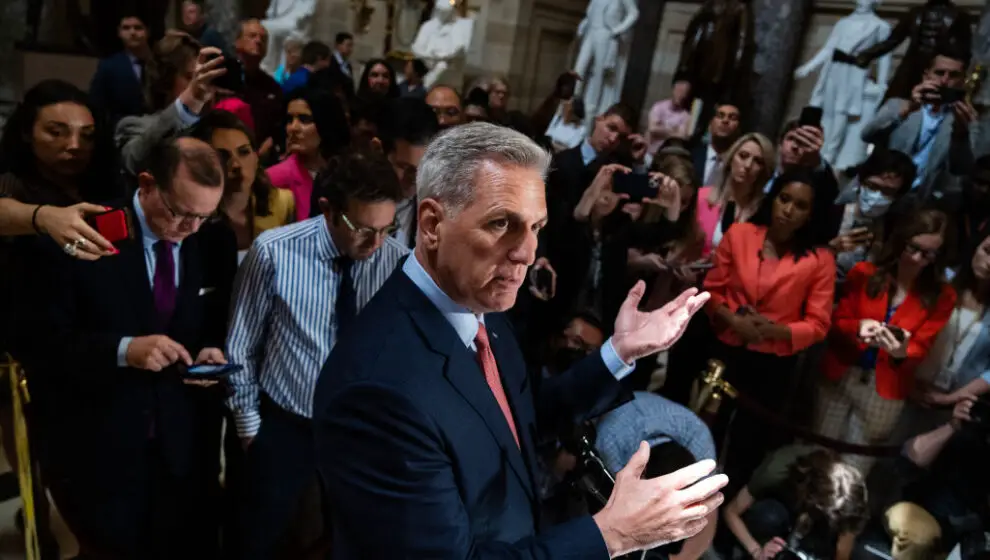The debt-ceiling battle is still raging on Capitol Hill, and the unresolved issues could have lasting effects on the average American’s investments.
Key Details
- Politicians in Washington have been arguing over the debt ceiling for months, and the deadline to lift it is drawing near.
- If lawmakers fail to agree, the U.S. could default on its debt, resulting in a lack of access to government benefits like Social Security, Medicare, and military benefits.
- The lack of a resolution could also mean trouble for the U.S. stock market. In 2011, a similar standoff resulted in a 16% drop in the S&P 500 over 10 days and the U.S. government receiving a credit downgrade, Bloomberg reports.
- For investors looking to protect themselves against a potential default, diverse investments may be the best protection against an unstable stock market.
Why it’s news
Debt-ceiling negotiations have progressed slowly, but lawmakers have still not reached a resolution. As the June 1 deadline draws near, concerns about the effect of a default on investments grow.
If the U.S. were to default, the federal government would be unable to make payments like Treasury securities, Social Security benefits, military benefits, or Medicare payments. These benefits would be paused, at least temporarily. The government’s inability to pay bondholders would be a particular issue for its credit rating. The inability to make these payments could result in a credit downgrade. This could trigger a recession as it would raise borrowing costs for the government, businesses, and households, Bloomberg reports.
However, an outright default is unlikely. Getting this close to a default, though, can still have consequences. In 2011, when the government faced a similar situation, the S&P Global Ratings reduced the U.S. rating following a lengthy debt-limit argument. The extended disagreement, along with the downgrade, negatively affected consumer confidence.
Already Marc Alan Wealth Management founder Marc Lescarret says there is “a good chance” the U.S. will receive another credit downgrade. This could affect consumers and increase borrowing rates, Bloomberg reports.
As the negotiations continue, the stock market is waiting for the results. As the deadline gets closer, the market could be volatile. A downgrade could have mixed results for U.S. Treasuries.
When facing economic distress, Treasuries can sometimes experience an influx of cash. These investments are regarded as relatively risk-free—leading investors to pour their money into them when the market appears unstable. However, if the government defaults, Treasury payments are one of the obligations, the government will be unable to pay—at least temporarily. Eventually, most experts expect Treasury holders will receive their payments, Bloomberg reports.
As investors prepare to face the worst, One Financial Design owner Julia Colantuono cautions investors not to panic. Ensuring a diverse portfolio is one of the best safeguards against potential market disruption.
Investors may want to consider checking their short-term goals. For example, if an investor plans to cash out in a few months to buy a house, he should consider what the market may look like by that time.
“Keeping in mind time horizon for various financial goals will serve investors well, so their investments have more time to recover from short-term volatility,” Colantuono tells Bloomberg.
Other investors are looking to gold to protect investments from a default or a downgrade. In a recent Bloomberg survey of financial professionals, over half said they would buy into gold in the event of a default.

